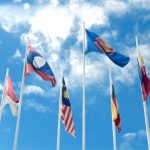ASEAN Member States join negotiations on global agreement to safeguard all life on earth

ASEAN Member States (AMS) and the ASEAN Centre for Biodiversity (ACB), representatives from State Parties to the United Nations Convention on Biological Diversity (CBD), experts, indigenous peoples and communities, and stakeholders from around the world, open talks this week on a global agreement to safeguard life on earth, in all its forms. This first meeting of the Open-Ended Working Group for the Post-2020 Global Biodiversity Framework is being held this 27 to 30 August 2019, in Nairobi, Kenya. One hundred ninety-six countries are represented in this meeting.
State Parties to the CBD are expected to adopt the post-2020 global biodiversity framework during their 15th Conference of the Parties (COP 15), scheduled for October 2020 in Kunming, China. The new framework represents the world’s plan to halt the alarming trends in the state of nature.
According to the Global Assessment on Biodiversity by the Intergovernmental Science-Policy Platform on Biodiversity and Ecosystem Services (IPBES), 75 per cent of the earth’s land surface has been significantly altered, 66 per cent of the ocean area is experiencing increasing cumulative impacts, and over 85 per cent of wetlands (area) has been lost. Anthropogenic interventions threaten more species with global extinction now more than ever before. Around one million species face extinction unless action to reduce biodiversity loss is taken.
The Intergovernmental Panel on Climate Change (IPCC) Special Report on Climate Change and Land shows the adverse effects of climate change, among them, the degradation of the world’s key biodiversity areas. If temperatures rise by 2°C above pre-industrial levels, one-third of these areas will be affected. At 4.5°C, two-thirds of these rich biodiversity areas will experience the impact.
Meanwhile, the 2019 World Economic Forum Global Risks Report, notes that, environmental issues like extreme weather events, failure of climate change mitigation and adaptation, natural and human-induced disasters, and biodiversity loss and ecosystem collapse are among the top world’s 10 risks with the greatest likelihood to happen and impact.
The post-2020 global biodiversity framework aims to respond to these ecological concerns. In this new framework, State Parties aim to build on the CBD’s current Strategic Plan on Biodiversity (2011-2020), which was adopted in 2010. The framework is expected to facilitate transformative change by taking a holistic approach to the multiple crises facing the planet and all its inhabitants, and leveraging opportunities to invest in biodiversity. Through nature-centered development pathways, the framework will set the course to achieving the CBD’s vision of “Living in Harmony with Nature” by 2050.
The Nairobi negotiations are drawing on extensive consultations that have taken place around the globe during 2019. In the ASEAN, the ACB has convened consultation meetings among the AMS and key partners in the region to craft the ASEAN’s contribution to the post-2020 global biodiversity framework. The first meeting was held on 24 April 2019 in Manila, Philippines; the second was held on 8 May 2019 in Vientiane, Lao PDR. The ACB synthesised all AMS’ inputs and submitted these to the CBD.
In their inputs to the post-2020 framework, the AMS identified mainstreaming, resource mobilisation, communication, and integrating diverse perspectives as four action areas to achieve the vision for 2050.
The AMS also recognise the need for (1) transboundary cooperation among countries to address key biodiversity issues, (2) strengthening linkages among ASEAN pillars such that cross-sectors should be part of action plans, allowing different sectors to be engaged in one another’s activities, and (3) transformation of mindset to see the AMS as one community working together to increase investment in biodiversity protection, conservation, and wise use.
The ACB is an intergovernmental organisation that facilitates cooperation and coordination among the 10 AMS and with regional and international organisations on the conservation and sustainable use of biological diversity, and the fair and equitable sharing of benefits arising from the use of such natural treasures.
“As we work towards living in harmony with nature in 2050, mainstreaming of biodiversity is essential,” ACB Executive Director Theresa Mundita Lim said. “Biodiversity is where we get our food, ingredients for medicine, materials for our clothing and shelter, and raw materials for businesses and industries. Biodiversity is interconnected with all development sectors.”
The ACB is working to mainstream biodiversity in the key development sectors of agriculture, fisheries, health, tourism, manufacturing and processing, education, and climate change.






